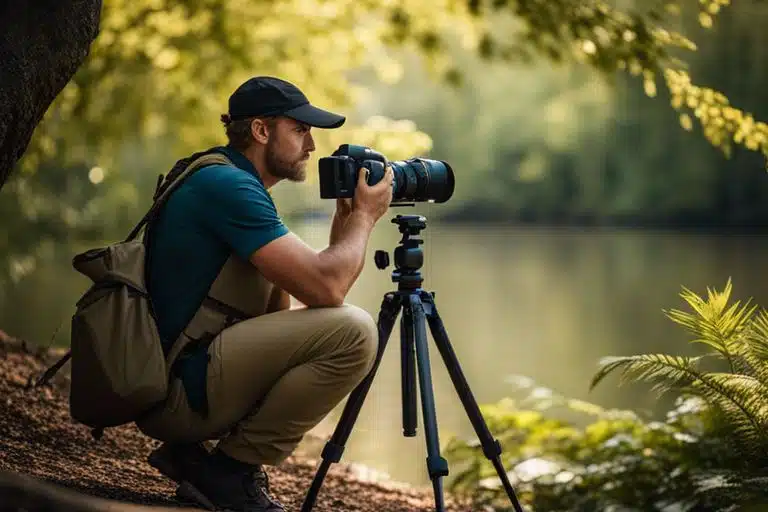This guide focuses on ethical practices for birders and bird photographers to ensure the well-being of birds, their habitat, and fellow enthusiasts. By following important guidelines such as respecting nesting birds, minimizing disturbance, and observing proper behavior when photographing birds, we can all contribute to the conservation of bird species. To learn more about birding ethics, visit Birding Ethics: Guidelines for respecting birds, their habitat, and each other.
Types of Birding Ethics
- Ethical Birding: Involves respecting the welfare of birds and their habitat by following a code of ethics and guidelines set by organizations like the American Birding Association.
- Unethical Birding Behavior: Includes actions that may disturb birds, their nesting sites, or habitat, such as using playback excessively, entering private property without permission, or attracting birds to dangerous situations.
Species Sensitivity and Vulnerability
An necessary aspect of birding ethics is understanding the sensitivity and vulnerability of bird species to human disturbance. It is crucial to avoid actions that may stress birds, especially during nesting seasons or in delicate habitats like nesting colonies.
Habitat Conservation and Protection
Even though bird photography is a popular activity among birders, it is vital to prioritize habitat conservation and protection over capturing the perfect shot. Birding should not interfere with the well-being of birds and their environment, ensuring that they are not exposed to danger or unnecessary disturbance. Thou shalt always respect the interests of the birds and prioritize their welfare above all else.

Tips for Ethical Birdwatching
Minimizing Disturbance to Birds
There’s a key responsibility for birdwatchers to minimize disturbance to birds in their natural habitat. Respect nesting sites and keep a safe distance, especially during sensitive times like nesting season. It’s crucial to be mindful of your actions to avoid stressing birds or exposing them to danger. By following ethical guidelines and being aware of your impact, you can help protect the well-being of the birds and their environment.
Proper Bird Photography Etiquette
An important aspect of ethical birdwatching is understanding proper bird photography etiquette. Bird photography can be a wonderful way to capture the beauty of these creatures, but it’s necessary to do so responsibly. Bird photographers should avoid using recordings to attract birds, as this can disrupt their natural behavior. It’s also important to respect the interests of fellow birders and the rights of others when taking photos in public spaces. By following a code of ethics and being mindful of your actions, you can enjoy bird photography while also protecting the welfare of the birds.
Step-by-Step Guide to Ethical Birding
| Planning Your Birding Trip with Ethics in Mind | Implementing Ethical Practices in the Field |
Planning Your Birding Trip with Ethics in Mind
With the rise in popularity of birding, it is crucial to plan your birding trips with ethics in mind to minimize disturbance to birds and their habitats. Consider factors such as the vulnerability of bird species in the area, respecting private property rights, and following all traffic rules to ensure a responsible and ethical birding experience for yourself and others.
Implementing Ethical Practices in the Field
With ethical birding practices, it is crucial to limit disturbance to birds and their environment. Avoid attracting birds to areas where they may be exposed to danger, limit the use of recordings, respect the rights of others, especially private property, and be mindful of your interactions with fellow birders. Plus, always prioritize the welfare of birds, whether it’s by minimizing habitat disturbance or sharing your knowledge and experience with others responsibly.
Factors Influencing Birding Ethics
All birders must consider the various factors that influence ethical birding practices. Knowing how these factors can impact birds, their habitat, and fellow birders is crucial for promoting responsible birding behaviors.
Seasonal Considerations and Breeding Seasons
Some of the most critical times to be aware of ethical birding practices are during breeding seasons and other seasonal changes. Nesting birds are especially vulnerable to disturbance during these times and it is crucial to avoid causing stress or exposing them to danger.
Legal Restrictions and Protected Areas
Seasons are critical for respecting legal restrictions and protected areas where certain bird species may be nesting or roosting. Protected areas are designated to safeguard important habitats and bird populations. It is crucial to abide by these regulations to minimize habitat disturbance and ensure the welfare of the birds.
Pros and Cons of Birding Practices
| Benefits | Consequences |
| Respecting birds and their habitat | Disturbing nesting birds |
| Creating a positive impact on the birding community | Potentially attracting predators to nests |
| Enhancing bird conservation efforts | Causing stress and disturbances to wildlife |
| Building a sense of community among birders | Unethical behavior leading to conflicts with others |
| Promoting education and awareness about birds | Violating private property rights |
| Ensuring sustainability of birding activities | Potentially causing habitat destruction |
Benefits of Ethical Birdwatching
There’s a sense of fulfillment and satisfaction that comes with knowing you are observing birds in a way that does not harm them or their environment. Respecting the interests of birds and their habitats while following ethical guidelines enhances the overall birding experience for everyone in the group.
Potential Consequences of Unethical Behavior
Assuming irresponsible or unethical behavior while birding can have serious consequences for the welfare of the birds and their environment. Behavior such as disturbing nesting birds, attracting predators to nests, causing stress to wildlife, and violating private property rights can not only impact the birds directly but also lead to conflicts with fellow birders and members of the community. It is important to always prioritize the well-being of birds and their habitats to ensure a positive birding experience for all.
Final Words
To wrap up, it is crucial for birders to uphold ethical guidelines when observing birds in their natural habitat in order to minimize disturbance and harm to both the birds and their environment. By following codes of birding ethics, respecting private property rights, and being mindful of the impact of our actions on both the wildlife and fellow birders, we can ensure a positive birding experience for everyone involved. Bear in mind, sharing knowledge and experiences with others can enhance the birding community and promote a culture of respect and responsibility towards birds and their habitats.
FAQ
Q: What are Birding Ethics?
A: Birding Ethics are guidelines put in place to ensure that birders respect birds, their habitat, and each other while engaging in birdwatching activities. These guidelines aim to minimize disturbance to wildlife, protect nesting birds, and promote ethical behavior in the birding community.
Q: How can birders respect nesting birds and their habitat?
A: Birders can respect nesting birds and their habitat by staying at a distance where they do not disturb the birds, especially near nests. It is important to avoid activities that may agitate the birds or modify their behavior, such as using playback recordings or getting too close to nesting colonies. Additionally, it is vital to limit the use of recordings and methods that may attract birds, especially in heavily birded areas.
Q: What should birders consider when birding with others?
A: When birding with others, birders should be respectful of the rights of fellow birders and other individuals they encounter during their birdwatching. It is important to share knowledge and experiences with others, especially beginners, in a helpful and encouraging manner. Birders should also be mindful of private property rights, avoid entering private property without permission, and follow all laws and regulations governing birding activities. Overall, birders should prioritize the welfare of birds and their environment in group birding situations.
As a bird enthusiast with a passion for sharing the wonders of our feathered friends. As a writer and nature lover, I'm thrilled to connect with fellow bird buffs and inspire others to take flight into the fascinating world of birds. Let's wing it together!


